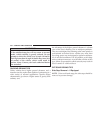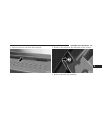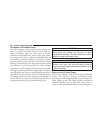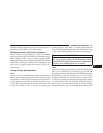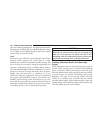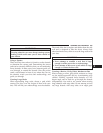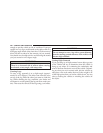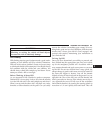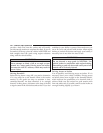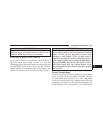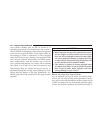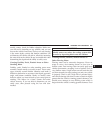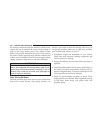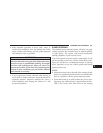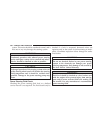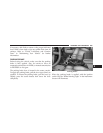
provide a fresh ЉbiteЉ into the surface and will usually
provide enough traction to complete the climb. If you do
not make it to the top, place the vehicle in REVERSE and
back straight down the grade using engine resistance
along with the vehicle brakes.
WARNING!
Never attempt to climb a hill at an angle or turn
around on a steep grade. Driving across an incline
increases the risk of a rollover, which may result in
severe injury.
Driving Downhill
Before driving down a steep hill, you need to determine
if it is too steep for a safe descent. What is the surface
traction? Is the grade too steep to maintain a slow,
controlled descent? Are there obstacles? Is it a straight
descent? Is there plenty of distance at the base of the hill
to regain control if the vehicle descends to fast? If you feel
confident in your ability to proceed, then make sure you
are in 4L (Low) and proceed with caution. Allow engine
braking to control the descent and apply your brakes, if
necessary, but do not allow the tires to lock.
WARNING!
Do not descend a steep grade in NEUTRAL. Use
vehicle brakes in conjunction with engine braking.
Descending a grade too fast could cause you to lose
control and be seriously injured.
Driving Across an Incline
If at all possible, avoid driving across an incline. If it is
necessary, know your vehicle’s abilities. Driving across
an incline places more weight on the downhill wheels,
which increases the possibilities of a downhill slide or
rollover. Make sure the surface has good traction with
firm and stable soils. If possible, transverse the incline at
an angle heading slightly up or down.
362 STARTING AND OPERATING



